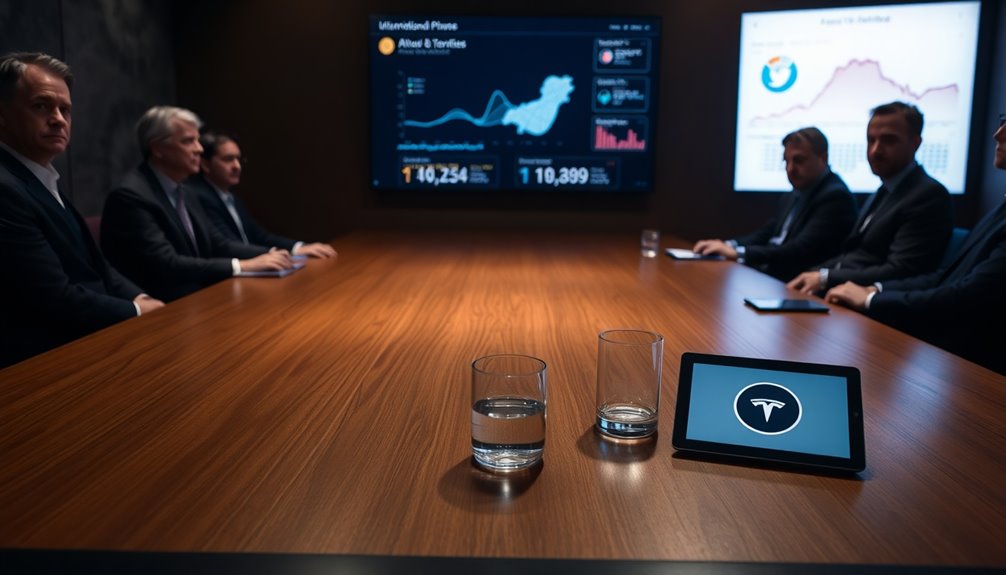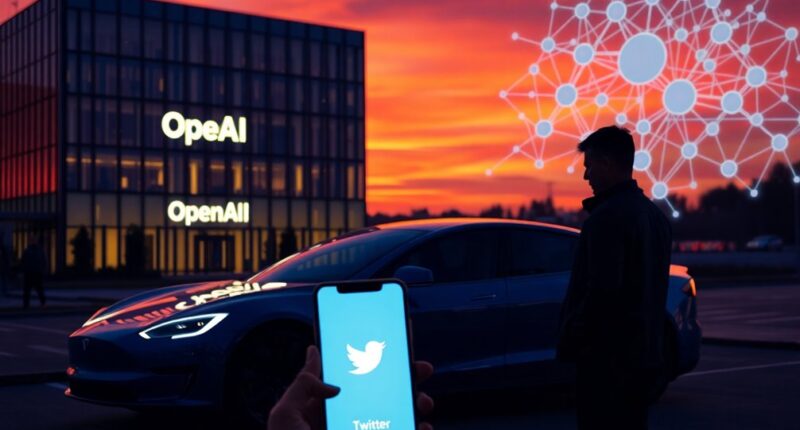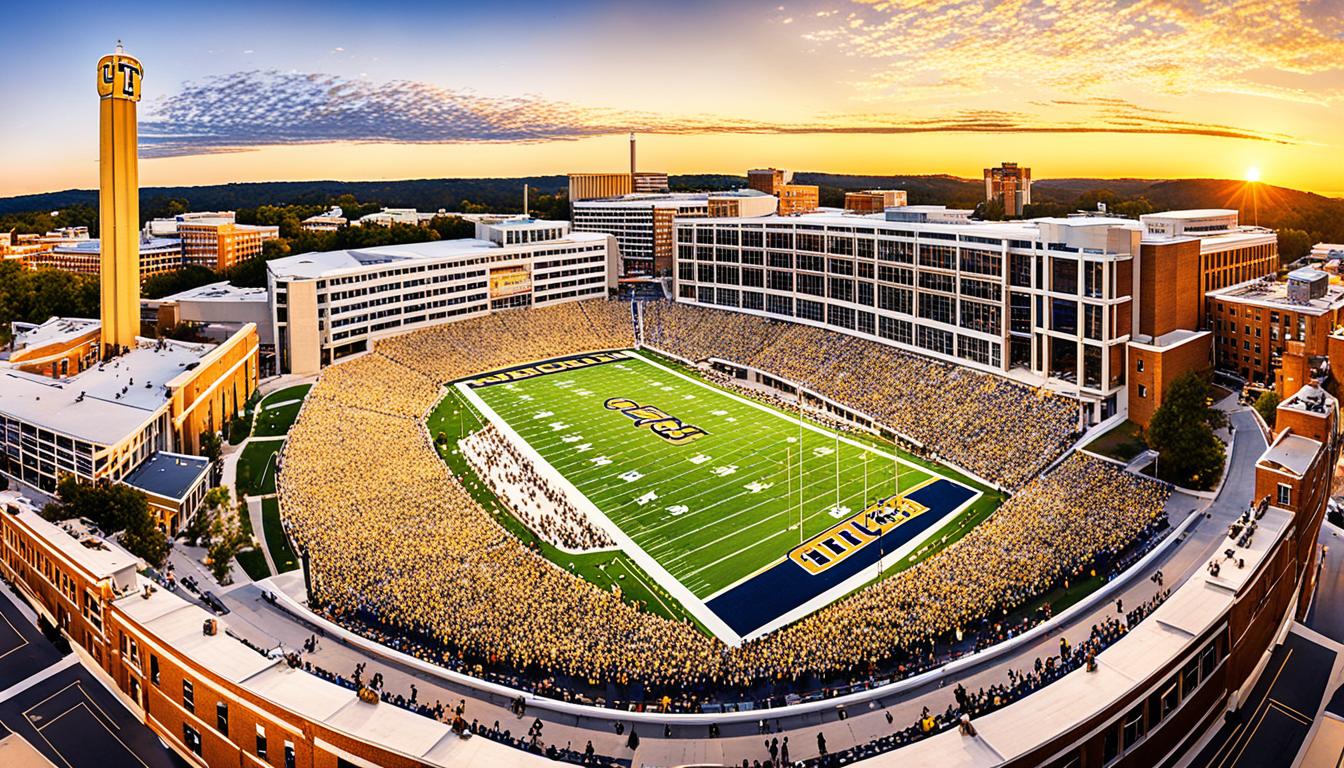As tensions rise in the tech world, you can't help but wonder about Elon Musk's intentions with OpenAI. With Sam Altman steering the organization toward Twitter, the landscape is shifting. Musk's acquisition proposal hints at a deeper rivalry, but what does this mean for the future of AI? The stakes are high, and the direction both companies take could reshape the industry. What will be their next strategic move?

As Elon Musk pursues a bold vision for AI with his recent lawsuit and acquisition proposal for OpenAI, the tech landscape braces for a potential shake-up. You might recall that Musk co-founded OpenAI in 2015, aiming to develop artificial intelligence for the benefit of humanity. However, his latest moves have sparked a firestorm of controversy, with a $97.4 billion acquisition proposal aimed at steering OpenAI back to its original mission. Musk's lawsuit, filed in March 2024, alleges contract violations, signaling a deep rift between him and OpenAI's current direction under CEO Sam Altman.
You may wonder why Musk is so invested in OpenAI's fate. It all comes down to his initial financial commitment of over $44 million between 2016 and 2020. His goal now is to realign OpenAI's focus, which has shifted towards commercialization since its transformation into a for-profit model, partly fueled by Microsoft's $1 billion investment in 2019. This transition was essential for securing the vast resources needed to develop AGI, which can cost billions annually due to the high cost of computing.
The tools OpenAI creates are already making waves globally, with projects spanning countries like Albania, Kenya, and India.
In a twist of irony, Altman responded to Musk's acquisition bid by jokingly suggesting that OpenAI could buy Twitter for $9.74 billion. This cheeky counteroffer speaks volumes about the ongoing rivalry and philosophical clash between the two tech titans. Musk's acquisition of Twitter in 2022, now rebranded as X, adds another layer to this complex narrative.
You see, Altman's response highlights OpenAI's confidence in its current path, pushing back against Musk's proposals. Despite Musk's ambitious plans, OpenAI continues to expand its AI capabilities, maintaining a focus on innovation and commercialization.
The rivalry between Tesla's AI initiatives, including Musk's xAI and the Grok-1 model, and OpenAI is likely to escalate. Each entity is vying for dominance in the burgeoning AI sector, and this competition might significantly impact the development and application of AI technologies in society.
As you look ahead, consider how these power plays could shape the future of AI. With investment opportunities growing for OpenAI, and Musk's relentless pursuit of his vision, the tech world will be watching closely. Each move could redefine not just their companies, but the very landscape of artificial intelligence itself.









